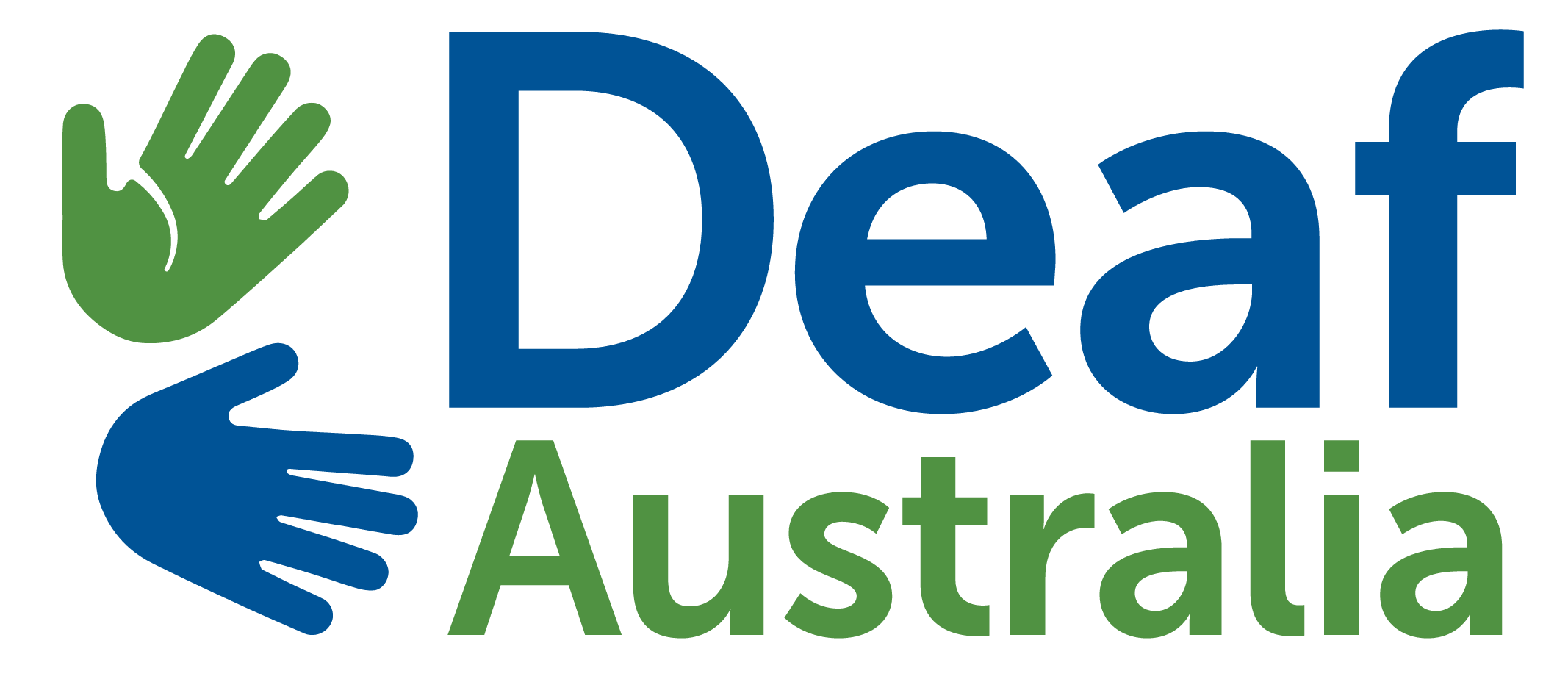No products in the cart.
Keynote Speakers Announced — National Auslan Conference 2016
The NAC2016 Organising Committee is pleased to announce two international Keynote Speakers for the National Auslan Conference 2016.
[spacer height=”20px”]Dr Jules Dickinson
 Jules is a practitioner-researcher, BSL/English interpreter and Professional Supervisor. Her PhD, ‘Interpreting in a Community of Practice: A Sociolinguistic Study of the Signed Language Interpreter’s Role in Workplace Discourse’, looks at the role of the interpreter in workplace settings, and explores the ways in which interpreters affect the dynamics between Deaf and hearing employees. She is particularly interested in how Deaf professionals and interpreters can work together.
Jules is a practitioner-researcher, BSL/English interpreter and Professional Supervisor. Her PhD, ‘Interpreting in a Community of Practice: A Sociolinguistic Study of the Signed Language Interpreter’s Role in Workplace Discourse’, looks at the role of the interpreter in workplace settings, and explores the ways in which interpreters affect the dynamics between Deaf and hearing employees. She is particularly interested in how Deaf professionals and interpreters can work together.
With this is mind she is keen to see a collaborative approach to interpreting in workplace settings, actively involving and engaging both Deaf and hearing employees in the interpreting process.
Jules’ research draws heavily on the experience of interpreters funded by the “Access to Work” program in the UK, but parallels can be drawn with the EAF and NDIS in Australia.[spacer height=”20px”]
Mr Shane Feldman
 Shane is Director of Strategic Partnerships and Development at the Communication Service for the Deaf, an organization committed to creating innovative technology and services that aim to transform the Deaf community’s experience with their access to communication. He served as the Executive Director of the Registry of Interpreters for the Deaf and Chief Operating Officer at the National Association of the Deaf, organisation that represent the interpreter and Deaf communities in the United States.
Shane is Director of Strategic Partnerships and Development at the Communication Service for the Deaf, an organization committed to creating innovative technology and services that aim to transform the Deaf community’s experience with their access to communication. He served as the Executive Director of the Registry of Interpreters for the Deaf and Chief Operating Officer at the National Association of the Deaf, organisation that represent the interpreter and Deaf communities in the United States.
His role as an advocate on behalf of the Deaf and Interpreter communities provided him with a unique insight into the systemic challenges that prevent a strong partnership among stakeholders in the interpreter experience.
Shane will illustrate a vision of the future where ingenious laws, technology, and services transcend the status quo. These changes will position a Deaf person to develop meaningful and rich relationships with the people and organizations in their lives. He will describe how we can make the choices that bring us together to shape the future that we want to build.
Shane believes that Australia has a unique opportunity to make incredible advances in Deaf Australian human rights where our country can become a model for other countries around the world to emulate in their quest to uphold their commitment to their Deaf citizens.
Please welcome Jules and Shane to the National Auslan Conference 2016.
[content_box style=”green-2″ title=”A gentle reminder”] Early bird registration closes on 30 April 2016. $500.00 for non-members and $450.00 for members (of Deaf Australia or ASLIA). After 30 April, the registration will be the Standard fee – $550 for non-members and $500 for members. Click here to register now!
Call for Papers has been extended to close on 6 MAY 2016. Click here for more information.
Like us on Facebook to receive up-to-date information about the Conference and Events. Click here to find us on Facebook. [/content_box]
Public announcement: Communication Accessibility — 2016 and beyond
(Consultation paper of National Relay Service)
Auslan Video courtesy of Conexu Foundation
The National Relay Service (NRS) has been an integral part of deaf/ hard of hearing people and people who have speech difficulties in providing communication access through telecommunication since it was established in 1995, lobbied by then Australian Association of the Deaf.
The NRS is funded through a levy that is collected from telecommunication providers each year.
There is a growing demand with the NRS in the last 3 years due to improved and better access to the NRS using various technologies and the Commonwealth Government is looking for ways to keep the NRS sustainable in current contract and beyond 2016.
The Commonwealth Government is providing the community the opportunity to discuss various options to sustain the NRS. If there are other options, we would be pleased to hear from you.
There are eight (8) options that is on the table for considerations:
- Increase the funding allocation available for the NRS to enable more people to sue the service with telecommunication providers covering the extra cost;
- Introduce measures to manage demand for NRS services;
- Introduce more specific requirements to support access to the NRS, including greater enforcement of fair use policies such as a registration process;
- Refocus the existing NRS outreach program to those people who have difficulty accessing the NRS;
- Review range of mainstream service options and technologies available to help sustain the delivery of the NRS in the future;
- Remove or change specific telecommunication regulations in place for disability equipment program due to communication technology changes (eg; reduced use of TTY);
- Encourage development of more equitable and affordable data-rich plans by retail service providers; and
- Encourage initiatives to enable people NRS users to learn about digital literacy and the availability of mainstreamed text- and video-based communication options.
Questions such as:
- Should any part of NRS be capped? E.g. limiting the calls to set minutes or reducing the operating hours.
- Phasing out TTY? What should be replaced?
- Should NRS require registration process to determine use of the NRS?
- Should the NRS Outreach program be refocused?
- Can more affordable data-rich plans be developed to allow use of NRS with mobile phone/ smart phones?
- Are there other innovation that can be used that will be better than current NRS?
More questions are available on page 20 of the Consultation Papers. https://www.communications.gov.au/have-your-say/communications-accessibility-2016-and-beyond
Deaf Australia clearly do not support (option 2). It means that some services may be limited or measures introduced (or ‘capping’) on how many calls can be made. If demand to use a capped service was greater than allowed for, there may be an impact on quality of service delivery over the course of each day. There is also limiting the hours of the service. Video Relay Service (VRS) is an example of a limited service as the service is only available between 7am – 6pm AEST – Monday to Friday.
Department of Communications and the Arts is currently developing Auslan translation of the consultation and should be available on Friday 15 April at the earliest.
This is an important process for the community to have a say in the future of the National Relay Service. We would be pleased if you can email Deaf Australia your concerns, ideas or thoughts at [email protected], or email directly to [email protected] or write to The Manager, Communication Accessibility, PO Box 13310, Law Court, Melbourne VIC 8010.
Submission closes 6 May 2016. Deaf Australia is seeking extension of time to allow us to collect your views.
National Auslan Conference 2016 **Update 8 April**
An update from NAC2016 Organising Committee.
The Organising Committee is working hard behind the scenes to prepare for the 2016 conference. We are close to confirming two exciting Keynote Speakers and will be making this announcement shortly.
We are pleased to advise you of the following activities that will enable a successful conference event.
Call for Papers:
The NAC2016 Organising Committee is seeking presentations directly linked to our conference theme, ‘A New Era’. Papers submitted should address development in the Deaf community and in the interpreting fields. Topics that pertain to the future landscape of the deafness sector will be viewed favourably.
Key Dates:
* 29 April 2016 – Abstract Submission Due
* 15 May 2016 – Letter advising outcomes
* 27 May 2016 – Acceptance of an Offer Due
* 30 Sept 2016 – Submit full paper and power-point presentation electronically.
To download more information about ‘Call for Papers’, please go to: http://nac2016.org.au/call-for-papers/
Conference Registration:
Conference Registration is now open.
Register now to receive the Early Bird Special Conference Package rate. The conference package includes attendance at the Opening welcome event, 2 day conference schedule and the Gala evening.
Discounted rates are offered to Deaf Australia members and ASLIA Members as follows:
Early Bird Registrations (until 30th April 2016)
Early Bird Ordinary Full Registration – $500
Early Bird Deaf Australia or ASLIA Member Registration –$ 450
Standard Registrations (1st May to 31st August 2016)
Standard Full Registration – $550
Standard Deaf Australia or ASLIA Member Full Registration –$500
Late Registrations (from 1 September 2016)
Late Registrations – $600
Late Registration – Deaf Australia or ASLIA Member $550
Registration for individual sessions and events is available, no discounted rates for members of ASLIA or Deaf Australia if purchasing individual sessions.
Register today on http://nac2016.org.au/register/
Please note: if you require accommodation, please refer to the ‘Accommodation’ section below.
Sponsorship:
NAC2016 is offering the opportunity for organisations and businesses to sponsor the National Auslan Conference 2016. There are several levels of sponsorship options available as well as exclusive packages.
NAC2016 offers a ‘Sponsor Prospectus’ for organisations and businesses. Please visit http://nac2016.org.au/sponsor-prospectus/ for additional information.
Accommodation:
Pullman Melbourne on the Park
192 Wellington Parade
East Melbourne Vic 3002
www.pullmanmelbourneonthepark.com.au
To make a reservation, contact directly via phone +61 (3) 9419 2000 or by email: [mailto][email protected][/mailto]
Please quote: National Auslan Conference.
Hotel note: All rooms will be subjected to hotel availability and credit card details will be required at the time of booking to secure a room.
There are several other accommodation options within walking distance of the conference venue in East Melbourne.



